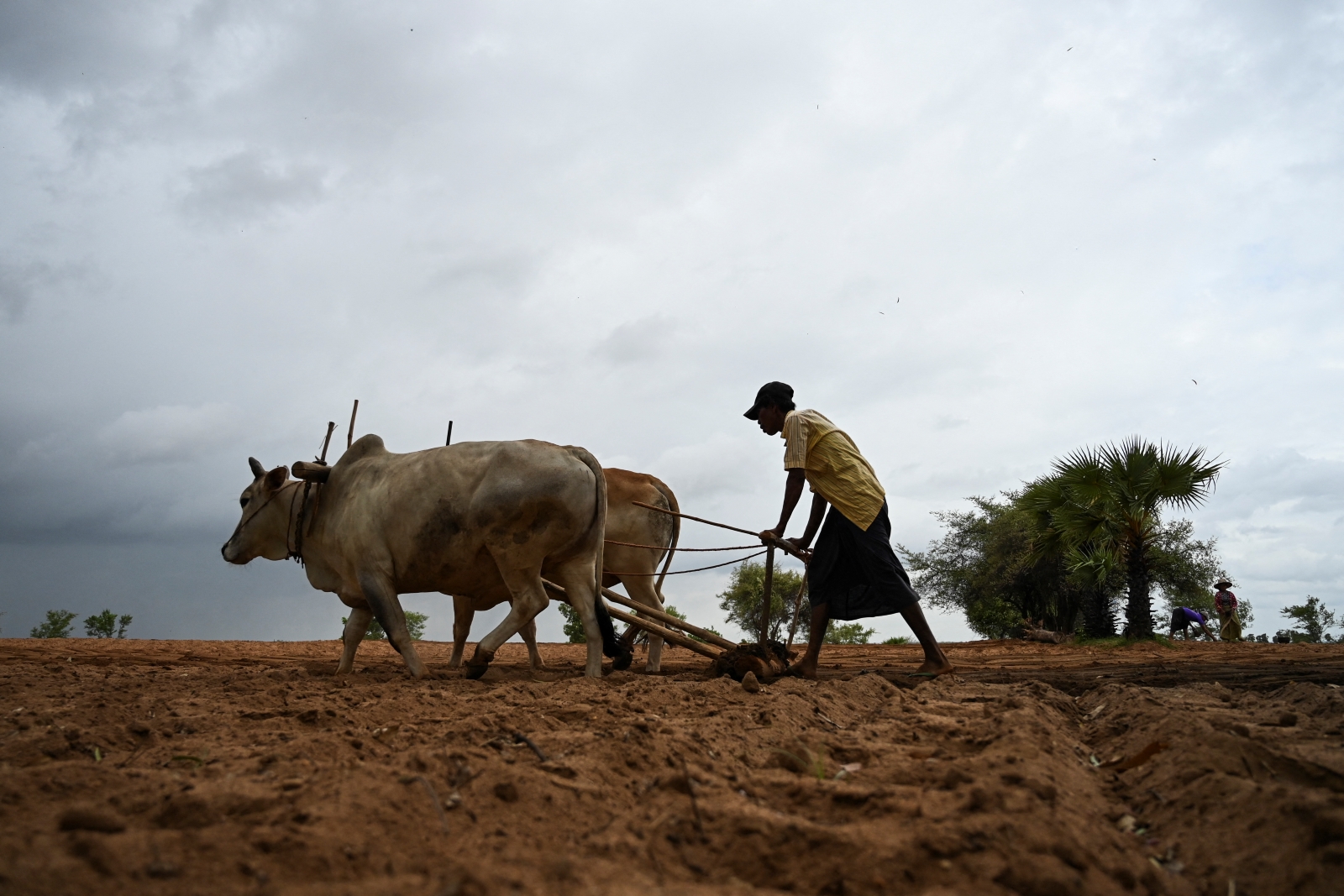By KYAW LIN HTOON | FRONTIER
YANGON — The Central Bank of Myanmar has removed a 0.8 percent trading band around the kyat, liberalising the foreign exchange market in a move that has been welcomed by bankers, despite continuing currency weakness.
The Central Bank set the trading band around the currency in 2012 when it introduced a managed floating exchange rate. Since then, it has set a daily reference rate based on demand at its daily dollar auctions and informal market rates. Banks and licensed money changes were required to offer buy and sell rates within 0.8 percent of the reference rate.
Bankers had complained that the trading band limited their ability to reflect market rates, particularly during periods when the kyat depreciated rapidly against international currencies. The decision to allow the currency to float freely has therefore been applauded.
“It’s good to remove such restrictions, as this is a market economy. Now we need to wait and see what will happen,” said U Than Lwin, a senior adviser to KBZ Bank.
Support more independent journalism like this. Sign up to be a Frontier member.
Since the Central Bank announcement the currency has weakened further, from K1,468 to the US dollar on the evening of August 12, to K1,508 today, according to foreign exchange website xe.com.
Money changers in downtown Yangon were offering even lower rates today of K1570 to the US dollar, and further volatility is likely as market forces determine the value of the currency.
The Central Bank did not explain its decision to remove restrictions in its statement, which was issued earlier this week and signed by deputy governor U Bo Bo Nge. However, bankers said it was not connected to the kyat’s depreciation in recent months.
U Pe Myint, an adviser to CB Bank, told Frontier the trading band was introduced as a way to maintain market stability when the kyat was first floated, but had since proven ineffective.
“Only the banks adhered to the reference rate rule. Money changers and other foreign exchange dealers never followed the instruction, so for a long time it has been useless,” he said. “But now, as the value of the kyat is depreciating, the Central Bank really needs to control it.”
However, Than Lwin argued that the recent fall in value was due to speculation, and was not an effect of deregulation. “Every time the Central Bank does something, the players behind the market [adjust their positions].” Now the market is open, he said, it could take some time before the kyat finds its natural level.
Economist and government adviser Mr Sean Turnell said the depreciating currency is “really not the problem some people think it is” and had been mostly driven by the appreciating US dollar.
In an August 15 Facebook post, he wrote that Myanmar did not have sufficient foreign reserves to defend the currency anyway. If the government tried to set the exchange rate, a black market would immediately emerge, he said, adding that a floating exchange rate brings many benefits.
“So, my feeling is simply to ‘keep calm and carry on’. Accelerate all the reforms that are sorely needed for other reasons, and let the exchange rate take care of itself. It will anyway!”







